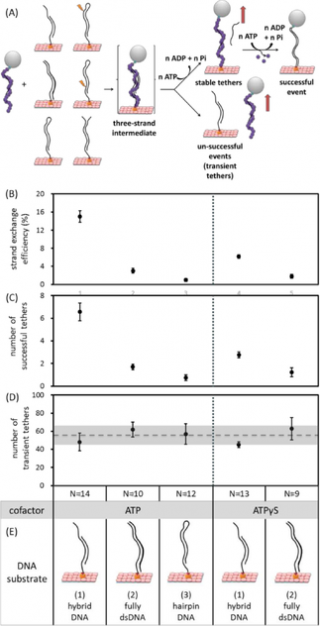Jan, 2017

DNA topology is thought to affect DNA enzyme activity. The helical structure of duplex DNA dictates the change of topological states during strand separation when DNA is constrained. During the repair of DNA double-stranded breaks, the RecA nucleoprotein filament invades DNA and carries out consecutive strand exchange reactions coupled with duplex DNA strand separation. It has been suggested that torsional strain could be generated and its accumulation could inhibit strand exchange. We used hairpin and nicked DNA substrates to test how torsional strain alters the RecA-mediated strand exchange efficiency. Single-molecule tethered particle motion (TPM) experiments showed that torsionally constrained hairpin DNA substrates returned nearly no successful strand exchange events catalyzed by RecA. Surprisingly, the strand exchange efficiencies increase in the presence of DNA nicks or loop disruption. The dwell time of transient RecA events in hairpin is shorter compared to those found in nicked or fork DNA substrates, which suggests a limited strand exchange progression in hairpin substrates. Our observation shows that RecA generates local torsional strain during strand exchange, and the inability to dissipate this torsional strain inhibits homologous recombination progression. DNA topological states are thus important regulation measures of DNA recombination.